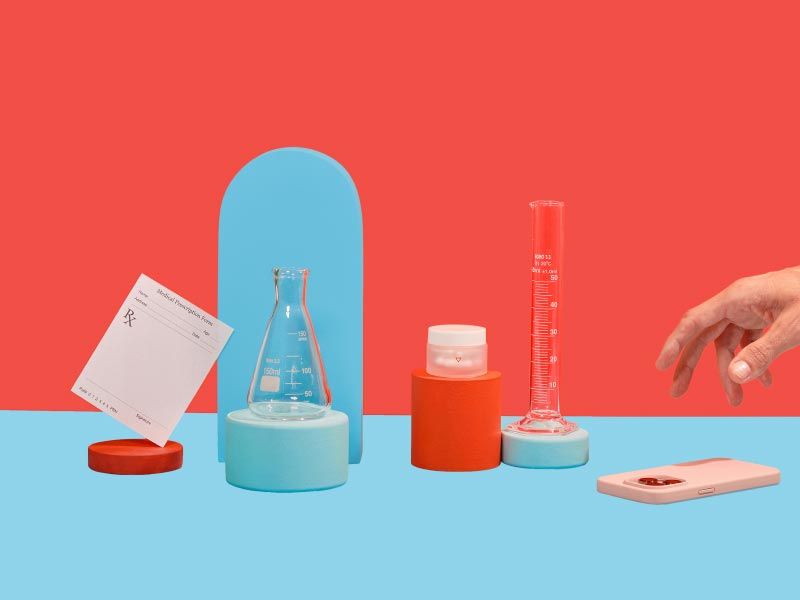
STD Awareness Week:
What are the health
risks of having sex?
By Kate Monahan
March 21, 2021
Sex is as pleasurable as it is natural, but it can come with a fair number of hazards if you aren’t careful. Frequent unprotected sex with multiple partners can make your odds of contracting a sexually transmitted disease (STD) go way up. Plus there’s the added stress of potentially infecting other people you sleep with, all of whom will need STD treatments to be healthy again.
Fortunately, while most common STDs are unpleasant, they are not terminal or chronic. The STDs chlamydia, gonorrhea, and trichomonas, which are caused by contracting common bacteria, can be cleared with a simple course of antibiotics. There are a number of common antibiotics used as STD treatments, each one targeting a different bacterium and different disease, so it’s important to consult a physician prior to beginning treatment.
Common STD Treatments for Chlamydia
Chlamydia, which is caused by the bacterium chlamydia trachomtis, is the most commonly spread STD in the world. In 70% of cases, the infected person is asymptomatic—they don’t display external symptoms—which often leads to a sexually-active individual spreading the disease without knowing it. Those who do develop symptoms usually experience unpleasantness in the genital region.
Men who contract Chlamydia can experience:
- penile discharge
- painful urination
- swelling of the testes
Women who contract Chlamydia can experience:
- vaginal discharge
- painful urination
- bleeding outside of menstruation.
The first-line STD treatments for Chlamydia are Azithromycin and Doxycycline. Pregnant women may require different STD treatments, like Amoxicillin.
Common STD Treatments for Gonorrhea
Gonorrhea is another very common bacterial STD. Unlike Chlamydia, an infected person is highly unlikely to be asymptomatic—you’re gonna know something is wrong!
Symptoms of gonorrhea in men include:
- penile discharge
- frequent urges to urinate
- painful swelling or redness at the opening of the penis or in the testicles
- a persistent sore throat
Symptoms of gonorrhea in women include:
- burning urination
- discharge
- heavier periods
- lower abdominal pains
Fortunately, in most cases, gonorrhea has one of the easiest STD treatments. In most cases, the antibiotic Azithromycin is administered for seven days, but in recent years have seen a rise in a bacterial-resistant mutation of the infection. STD treatments for these strains usually involve a single shot of ceftriaxone as well as a course of antibiotics. Reinfection of gonorrhea is very common, however, and it may necessitate more courses of STD treatments.
STD Treatments for Trichomoniasis
Trichomoniasis is the term for infection by the parasite trichomonas vaginalis. Both men and women can contract trichomoniasis, but it is far more common in women. Often, those who have trichomoniasis fail to show acute symptoms. However, inflammation resulting from the infection raises your chances of contracting other STDs and requiring other STD treatments. Like gonorrhea, symptoms for Trichomoniasis include:
- burning urination
- discharge
- sharp pains
- redness
- swelling
STD treatments for trichomoniasis include the antibiotic medications metronidazole and tinidazole. These capsules are taken in either one large dose or a course of smaller doses over a few days. Even though trichomoniasis is easily cured with STD treatments, reinfection rates within three months can be as high as 20%. Because trichomoniasis can often be asymptomatic, women of childbearing age are advised to be tested yearly.
Consultation for STD Treatments
If you’re sexually active and have concerns that you may require STD treatments, consultation with doctors is now faster and easier than ever with Wisp. Wisp is a team of doctors that provide private online consultations, and can treat common STDs with a single, discreet session. Click here for more details.

Valacyclovir & Acyclovir | HSV-1
Starting at $10/ month
Get hassle-free, judgement-free herpes treatment from the comfort of your couch (no pants required).

BV Antibiotics (Tablets or Gel)
Starting at $15
Request topical or oral prescription antibiotics to treat bacterial vaginosis.

Boric Acid Suppositories
Starting at $27
An over-the-counter vaginal suppository custom-made to help prevent & relieve infections.

Wisp Basic Probiotics
Starting at $9
Designed for basic daily support for gut and vaginal health, or to counterbalance mild side effects from antibiotics.

